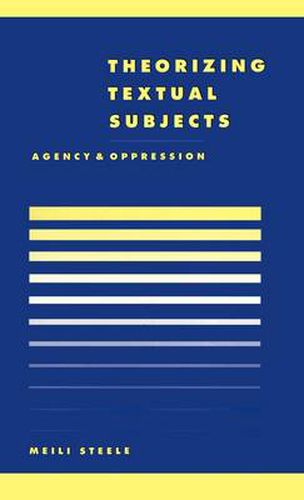Readings Newsletter
Become a Readings Member to make your shopping experience even easier.
Sign in or sign up for free!
You’re not far away from qualifying for FREE standard shipping within Australia
You’ve qualified for FREE standard shipping within Australia
The cart is loading…






This book addresses the central crisis in critical theory today: how to theorise the subject as both a construct of oppressive discourse and a dialogical agent. By engaging with a wide range of leading political, philosophical, and critical thinkers - Jameson, Habermas, MacIntyre, Rorty, Taylor, Benhabib, and West are all critiqued - Meili Steele proposes linking language with human agency in order to develop an alternative textual and ethical theory of the subject. Steele shows how constructivist theories of agency fail to account for the ethical implications of the supposed contingency of all contexts, and how dialogical theorists fail to acknowledge the insight of postmodern critiques. Developing this theory through readings of texts that address issues of identity, politics, race, and feminist theory, Steele illustrates that we do not have to choose between an idealised or demonised modernity.
$9.00 standard shipping within Australia
FREE standard shipping within Australia for orders over $100.00
Express & International shipping calculated at checkout
This book addresses the central crisis in critical theory today: how to theorise the subject as both a construct of oppressive discourse and a dialogical agent. By engaging with a wide range of leading political, philosophical, and critical thinkers - Jameson, Habermas, MacIntyre, Rorty, Taylor, Benhabib, and West are all critiqued - Meili Steele proposes linking language with human agency in order to develop an alternative textual and ethical theory of the subject. Steele shows how constructivist theories of agency fail to account for the ethical implications of the supposed contingency of all contexts, and how dialogical theorists fail to acknowledge the insight of postmodern critiques. Developing this theory through readings of texts that address issues of identity, politics, race, and feminist theory, Steele illustrates that we do not have to choose between an idealised or demonised modernity.